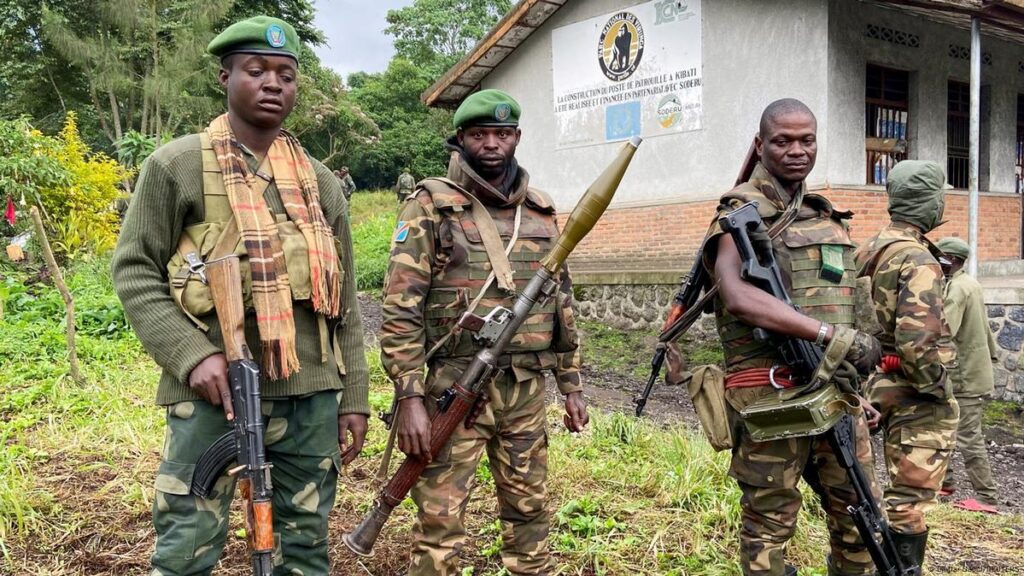M23 Rebels Pull Out of Angola Peace Talks, Heightening Instability in Eastern DR Congo
In a pivotal development within the protracted conflict in eastern Democratic Republic of Congo (DR Congo), the M23 rebel faction has declared its withdrawal from peace negotiations held in Angola. This move, announced by M23 leadership, complicates an already fragile situation characterized by persistent violence and deepening humanitarian distress. The rebels’ exit from talks aimed at de-escalating tensions and fostering stability casts doubt on the prospects for peace in a region long afflicted by armed strife. As regional actors and international bodies assess this setback, the humanitarian crisis continues to worsen, further challenging efforts to secure lasting tranquility.
Implications of M23’s Withdrawal on Regional Security
The decision by M23 to abandon dialogue sessions signals a troubling intensification of conflict dynamics across eastern DR Congo. Neighboring countries and global observers have expressed alarm as the group cited insufficient commitment from Kinshasa’s government to tackle fundamental grievances fueling hostilities. This breakdown threatens to reignite violent confrontations that could destabilize not only local communities but also spill over into adjacent nations within the Great Lakes region.
Experts highlight several critical consequences stemming from this development:
- Surge in Armed Clashes: Without diplomatic channels open, combat between rival factions is likely to escalate as control over strategic territories becomes fiercely contested.
- Deterioration of Humanitarian Conditions: Renewed fighting risks displacing more civilians amid already overcrowded camps with scarce resources.
- Regional Destabilization Risks: Cross-border tensions may rise as neighboring states face pressure from refugee flows and potential militant incursions.
Humanitarian Crisis Deepens Amid Ongoing Conflict in Eastern DR Congo
The prolonged clashes involving M23 insurgents have severely impacted civilian populations throughout eastern DR Congo, exacerbating poverty and undermining essential services such as healthcare and education infrastructure. The destruction wrought by continuous violence has left millions vulnerable—struggling with displacement, food insecurity, and limited access to medical care.
- IDP Surge: Over 5.5 million individuals have been uprooted internally due to escalating hostilities; many reside in congested camps where basic necessities remain scarce.[Source]
- Women & Children at Risk: Vulnerable groups face heightened threats including sexual violence; children often miss out on schooling or psychological support vital for trauma recovery.
- Agricultural Disruptions: Hostilities interrupt farming cycles leading to food shortages that drive up prices—deepening hunger among rural families dependent on subsistence agriculture.
| Humanitarian Challenge | Estimated Number Affected |
|---|---|
| Food Insecurity | 26 million people |
| Lack of Clean Water Access | 18 million people |
| Lack of Healthcare Services | 12 million people |
| Pediatric Malnutrition Cases | 3 million children affected |
This withdrawal disrupts ongoing humanitarian operations designed to alleviate suffering across conflict zones. Reduced dialogue diminishes trust necessary for safe aid delivery while compounding challenges faced by relief organizations striving against mounting needs amid volatile security conditions.
International Response: Approaches Toward Renewed Dialogue and Stability Building
M23’s retreat from peace discussions highlights an urgent call for international stakeholders—including regional governments, multilateral organizations, and NGOs—to recalibrate their engagement strategies toward sustainable conflict resolution mechanisms emphasizing inclusivity and local empowerment.
- Cultivating Local Leadership Engagement: A bottom-up approach involving community leaders can build trust foundations ensuring negotiated solutions resonate culturally while addressing grassroots concerns effectively.
- Strengthening Civil Society Participation: Nurturing NGOs’ roles enhances pluralistic discourse incorporating marginalized voices often excluded yet crucial for durable peace.
- Enhancing Regional Diplomatic Coordination: A concerted effort among neighboring states can unify responses tackling root causes such as resource competition or ethnic tensions driving instability.
Core Component Description Impartial Mediation Bodies td >< td >Engagements facilitated through neutral third parties trusted equally by conflicting sides .< / td > tr > < tr >
Ceasefire Monitoring Systems td >< td >Regular verification processes ensuring adherence , deterring violations .< / td > tr > < tr >
Unrestricted Humanitarian Corridors td >< td >Guarantees safe passage enabling uninterrupted aid delivery regardless of shifting frontlines .< / td > tr > < / tbody > table >
Final Thoughts: Navigating Challenges Toward Lasting Peace in Eastern DR Congo < / h2 >
The recent announcement withdrawing participation from Angola-based negotiations represents a major hurdle toward stabilizing eastern Democratic Republic of Congo’s volatile landscape. With renewed risks surrounding escalation between armed factions alongside government forces looming large , it is imperative that global partners reassess diplomatic frameworks prioritizing inclusive dialogue , robust monitoring mechanisms ,and protection for vulnerable populations caught amidst turmoil . Ultimately , addressing both political grievances fueling rebellion alongside urgent humanitarian needs remains key if durable peace is ever attainable within this deeply fractured region . As developments unfold , sustained international commitment coupled with locally grounded initiatives will be essential pillars supporting any future breakthroughs toward reconciliation .
p >

